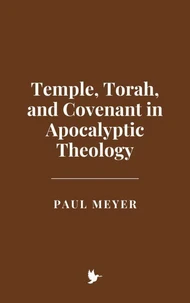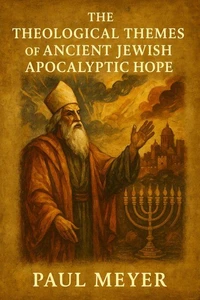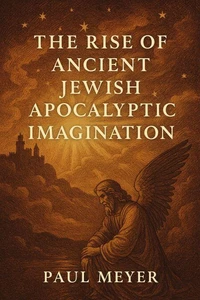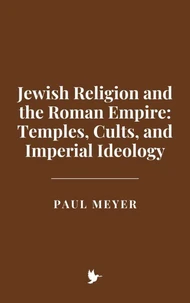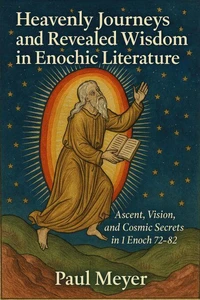Religion and Politics in the Hittite Kingdom During the Old Testament Times
Par :Formats :
Disponible dans votre compte client Decitre ou Furet du Nord dès validation de votre commande. Le format ePub est :
- Compatible avec une lecture sur My Vivlio (smartphone, tablette, ordinateur)
- Compatible avec une lecture sur liseuses Vivlio
- Pour les liseuses autres que Vivlio, vous devez utiliser le logiciel Adobe Digital Edition. Non compatible avec la lecture sur les liseuses Kindle, Remarkable et Sony
 , qui est-ce ?
, qui est-ce ?Notre partenaire de plateforme de lecture numérique où vous retrouverez l'ensemble de vos ebooks gratuitement
Pour en savoir plus sur nos ebooks, consultez notre aide en ligne ici
- FormatePub
- ISBN8227839718
- EAN9798227839718
- Date de parution10/01/2025
- Protection num.pas de protection
- Infos supplémentairesepub
- ÉditeurBig Dog Books, LLC
Résumé
This work examines the multifaceted impact of the Hittite Empire on the ancient Near East and its enduring legacy in subsequent civilizations. The Hittites, once a dominant power in Anatolia, Syria, and northern Mesopotamia, established a sophisticated political, legal, and religious framework that influenced neighboring cultures, including the Assyrians, Babylonians, Egyptians, and Israelites. Through a detailed exploration of Hittite governance, diplomacy, religious practices, and art, this study highlights the ways in which the Hittites contributed to the development of imperial systems, the concept of divine kingship, and the establishment of treaties and legal codes that shaped the political landscape of the ancient world.
The Hittite system of suzerainty treaties, particularly their invocation of divine witnesses, was foundational to the diplomatic practices of later empires, including the Assyrians and Persians. The study also delves into Hittite art and material culture, demonstrating how their monumental architecture, religious sculptures, and everyday artifacts reflected both their imperial power and their syncretic religious practices.
Furthermore, the parallels between Hittite treaties and the biblical covenants, especially those in Deuteronomy, reveal the influence of Hittite diplomatic and legal models on the Israelites' religious and political identity. In the aftermath of the Hittite Empire's collapse around 1200 BCE, the Neo-Hittite states that emerged continued to preserve and adapt Hittite cultural and religious traditions, which influenced the Assyrian, Persian, and later Greek empires.
Despite the eventual decline of Hittite political power, their legacy lived on through the empires that succeeded them, contributing to the formation of the classical world's political, religious, and legal systems. This study highlights the profound and lasting impact of Hittite civilization, illustrating how their innovations shaped the trajectory of ancient empires and influenced the historical and cultural development of the ancient Near East and beyond.
The Hittite system of suzerainty treaties, particularly their invocation of divine witnesses, was foundational to the diplomatic practices of later empires, including the Assyrians and Persians. The study also delves into Hittite art and material culture, demonstrating how their monumental architecture, religious sculptures, and everyday artifacts reflected both their imperial power and their syncretic religious practices.
Furthermore, the parallels between Hittite treaties and the biblical covenants, especially those in Deuteronomy, reveal the influence of Hittite diplomatic and legal models on the Israelites' religious and political identity. In the aftermath of the Hittite Empire's collapse around 1200 BCE, the Neo-Hittite states that emerged continued to preserve and adapt Hittite cultural and religious traditions, which influenced the Assyrian, Persian, and later Greek empires.
Despite the eventual decline of Hittite political power, their legacy lived on through the empires that succeeded them, contributing to the formation of the classical world's political, religious, and legal systems. This study highlights the profound and lasting impact of Hittite civilization, illustrating how their innovations shaped the trajectory of ancient empires and influenced the historical and cultural development of the ancient Near East and beyond.
This work examines the multifaceted impact of the Hittite Empire on the ancient Near East and its enduring legacy in subsequent civilizations. The Hittites, once a dominant power in Anatolia, Syria, and northern Mesopotamia, established a sophisticated political, legal, and religious framework that influenced neighboring cultures, including the Assyrians, Babylonians, Egyptians, and Israelites. Through a detailed exploration of Hittite governance, diplomacy, religious practices, and art, this study highlights the ways in which the Hittites contributed to the development of imperial systems, the concept of divine kingship, and the establishment of treaties and legal codes that shaped the political landscape of the ancient world.
The Hittite system of suzerainty treaties, particularly their invocation of divine witnesses, was foundational to the diplomatic practices of later empires, including the Assyrians and Persians. The study also delves into Hittite art and material culture, demonstrating how their monumental architecture, religious sculptures, and everyday artifacts reflected both their imperial power and their syncretic religious practices.
Furthermore, the parallels between Hittite treaties and the biblical covenants, especially those in Deuteronomy, reveal the influence of Hittite diplomatic and legal models on the Israelites' religious and political identity. In the aftermath of the Hittite Empire's collapse around 1200 BCE, the Neo-Hittite states that emerged continued to preserve and adapt Hittite cultural and religious traditions, which influenced the Assyrian, Persian, and later Greek empires.
Despite the eventual decline of Hittite political power, their legacy lived on through the empires that succeeded them, contributing to the formation of the classical world's political, religious, and legal systems. This study highlights the profound and lasting impact of Hittite civilization, illustrating how their innovations shaped the trajectory of ancient empires and influenced the historical and cultural development of the ancient Near East and beyond.
The Hittite system of suzerainty treaties, particularly their invocation of divine witnesses, was foundational to the diplomatic practices of later empires, including the Assyrians and Persians. The study also delves into Hittite art and material culture, demonstrating how their monumental architecture, religious sculptures, and everyday artifacts reflected both their imperial power and their syncretic religious practices.
Furthermore, the parallels between Hittite treaties and the biblical covenants, especially those in Deuteronomy, reveal the influence of Hittite diplomatic and legal models on the Israelites' religious and political identity. In the aftermath of the Hittite Empire's collapse around 1200 BCE, the Neo-Hittite states that emerged continued to preserve and adapt Hittite cultural and religious traditions, which influenced the Assyrian, Persian, and later Greek empires.
Despite the eventual decline of Hittite political power, their legacy lived on through the empires that succeeded them, contributing to the formation of the classical world's political, religious, and legal systems. This study highlights the profound and lasting impact of Hittite civilization, illustrating how their innovations shaped the trajectory of ancient empires and influenced the historical and cultural development of the ancient Near East and beyond.




